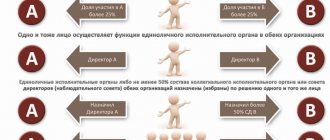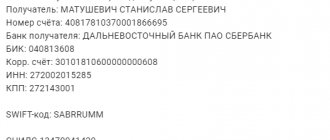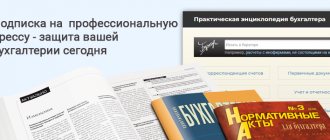Kontur.Accounting - the optimal service for UTII
Automated calculation of taxes and transactions with employees.
The simplest accounting possible. The service itself will generate KUDiR, declaration and reports. You can combine modes. Try for free
UTII is a special tax regime. It reduces the number of mandatory taxes and reduces the payment amount. UTII can be used for activities related to the provision of household services. Since 2022, the OKUN classifier has been canceled, and OKVED and OKPD have been updated, so it’s easy to get confused in the new codes. In the article we provide a current list of household services for the use of UTII in 2022.
UTII household services
When providing household services, you can apply UTII. But the possibility of switching to imputation depends on:
- whether the UTII regime has been introduced in your territory;
- whether the service is classified as household;
- whether UTII has been introduced in the region in relation to your activity.
From January 1, 2022, imputation will be cancelled. It’s time for everyone who provided household services and worked for UTII to choose a new tax regime. Choose the most favorable tax system for yourself using our online calculator. We described in the article how to transfer household services from UTII to the new regime. If you don’t find the answer to your question, ask it in the comments to the text, we will definitely answer.
The local representative body makes a decision on the introduction of UTII. It defines household services that can be provided on UTII in a given area. Imputation may be allowed to be used for individual household services, their groups and types. Then the special regime can only be applied to the services specified in the act. If you operate outside of your local location, follow the regulations of the region in which you provide services.
Household services on UTII are characterized by three features:
- the service is recognized as household;
- the service is provided to individuals;
- A fee is charged for the provision of services.
If your services meet the conditions, you can use UTII. Now let’s take a closer look at the difficulties with dividing services into household and other types.
What applies to public service facilities?
Public service facilities for the population include specially equipped stationary premises (parts thereof) intended to provide services to the population and provided with the necessary equipment: studios, workshops, workshops, salons, etc.
Interesting materials:
How to bleach things with boric acid? How to bleach bra straps? How to bleach bra straps? How to bleach a case from yellowness? How to bleach a transparent case? How to bleach children's white clothes at home? How to whiten baby diapers? How to bleach baby clothes at home? How to whiten the bottom of a bathtub? How to bleach a jumper?
Are you switching from UTII? Connect Kontur.Accounting
45% discount in November: RUR 7,590 instead of 13,800 rub. per year of work
Easy bookkeeping
The system itself will calculate taxes and remind you of the deadlines for payments and submission of reports.
Automatic calculation of salaries, vacation pay and sick leave
Technical support 24/7, tips inside the service, reference and legal database
Sending reports via the Internet
Reports and KUDiR are generated automatically based on accounting data
Electronic document management and quick verification of counterparties
Documents, transactions, analytical reports, VAT reconciliation
List of household services 2022
| Name of service | OKVED 2 | OKPD 2 |
| Services for protecting plants from pests and diseases | 01.61 | 01.61.10.140 |
| Production of plucked wool, raw hides and skins | 10.11.4 | 10.11.4 |
| Sausage production | 10.13.2 | 10.13.14 |
| Potato processing and canning | 10.31 | 10.31 |
| Production of oils and fats | 10.41 | 10.41 |
| Production of flour from grains | 10.61.2 | 10.61.2 |
| Production of cereals and grain granules | 10.61.3 | 10.61.3 |
| Preparation and spinning of textile fibers | 13.10.9 | 13.10.93.120 |
| Textile pleating | 13.30.3 | 13.30.19.120 |
| Sewing textiles to order (except clothing) | 13.92.2 | 13.92.99.000 |
| Sewing textiles to order | 13.99.4 | 13.99.99.000 |
| Tailoring of leather and suede clothes to order | 14.11.2 | 14.11.99.200 |
| Sewing industrial clothing to order | 14.12.2 | 14.12.99.200-220 |
| Knitting and tailoring of outerwear to order | 14.13.3 | 14.13.99.200-250 |
| Tailoring of linen to order | 14.14.4 | 14.14.99.200-230 |
| Knitting and sewing of other clothes, accessories, hats | 14.19.5 | 14.19.99.200-280 |
| Manufacturing of fur products to order | 14.20.2 | 14.20.99.200-220 |
| Production of hosiery products to order | 14.31.2 | 14.31.19.200 |
| Manufacturing of other custom products | 14.39.2 | 14.39.99.200 |
| Manufacturing of shoes and accessories to order | 15.20.5 | 15.20.99.200-230 |
| Made from wood, cork, straw to order | 16.29.3 | 16.29.99.200 |
| Cutting, processing and finishing of stone for monuments | 23.70.2 | 23.70.1 |
| Forging, profiling, stamping, sheet metal pressing | 25.50.1 | 25.50.11.110 |
| Metal coating and processing | 25.61 | 25.61.11.112-140 |
| Metal machining | 25.62 | 25.62.20 |
| Manufacturing of metal products to order | 25.99.3 | 25.99.99.200-229 |
| Kitchen sets to order | 31.02.2 | 31.02.99.200 |
| Manufacturing of other furniture and parts | 31.09.2 | 31.09.91.112-115 31.09.99.200-229 |
| Jewelry to order | 32.12.6 | 32.12.99.200-219 |
| Jewelry to order | 32.13.2 | 32.13.99.200-210 |
| Repair of power hand tools (power tools) | 33.12 | 33.12.17 |
| Repair of electronics and optical equipment | 33.13 | 33.13.1 |
| Repair and maintenance of water transport (ships and boats) | 33.15 | 33.15.10 |
| Repair of other equipment | 33.19 | 33.19.10 |
| Development of construction projects | 41.10 | 41.10.10 |
| Construction of housing and non-residential buildings | 41.20 | 41.20.30-40 |
| Electric installation work | 43.21 | 43.21.10 |
| Installation of air conditioners, heating systems and plumbing work | 43.22 | 43.22.11.120 43.22.12.140 |
| Other construction and installation works | 43.29 | 43.29.11 43.29.12.110 |
| Plastering works | 43.31 | 43.31.110 |
| Joinery and carpentry work | 43.32 | 43.32.10 |
| Floor covering and wall covering | 43.33 | 43.33.10-2 |
| Painting and glass work | 43.34 | 43.34 |
| Other finishing, cleaning and other post-construction work | 43.39 | 43.39.11 |
| Roofing | 43.91 | 43.91.19 |
| Specialized construction work | 43.99 | 43.99.10-60 43.99.90.130-190 |
| Vehicle repair and maintenance | 45.20 | 45.20.11 |
| Maintenance and repair of cars and light trucks | 45.20.1 | 45.20.11.100-519 |
| Maintenance and repair of other vehicles | 45.20.2 | 45.20.20-21 45.20.21.100-519 45.20.22-45.20.23 |
| Car washing, polishing and similar services | 45.20.3 | 45.20.30 |
| Motor vehicle maintenance and repair | 45.40.5 | 45.40.50.110-119 |
| Publishing house of other printed materials, incl. business cards and invitations | 58.19 | 58.19.11.200 |
| Design services | 74.10 | 74.10.11-19 |
| Photo services | 74.20 | 74.20.21 74.20.21.111-119 74.20.23 74.20.31 74.20.32 74.20.39 |
| Text translation | 74.30 | 74.30 |
| Leasing and rental of passenger vehicles | 77.11 | 77.11.10 |
| Leasing and rental of freight transport | 77.12 | 77.12.11 |
| Rental and rental of sports equipment and travel equipment | 77.21 | 77.21.10 |
| Rental of cassettes, discs, records | 77.22 | 77.22.10 |
| Hire and rental of personal items | 77.29 | 77.29 |
| Rental and leasing of agricultural machinery and equipment | 77.31 | 77.31.10 |
| Rental and leasing of office equipment | 77.33 | 77.33.1 |
| Cleaning of apartments and residential buildings | 81.21.1 | 81.21.10 |
| Cleaning and cleaning of residential and non-residential premises | 81.22 | 81.22.11-13 |
| Disinfection, disinsection, deratization | 81.29.1 | 81.29.12-19 |
| Landscape improvement | 81.30 | 81.30.10 |
| Preparation of documents and assistance in office activities | 82.19 | 82.19.13 |
| Help for the sick and disabled | 88.10 | 88.10.14 |
| Nanny for a child | 88.91 | 88.91.13 |
| Entertainment and entertainment activities | 93.29.3 | 93.29.19 |
| Other entertainment and entertainment activities | 93.29.9 | 93.29.21 |
| PC and computer equipment repair | 95.11 | 95.11.10.110-190 |
| Communication equipment repair | 95.12 | 95.12.10 |
| Repair of electronic home appliances | 95.21 | 95.21.10.100-300 |
| Repair of garden tools, household appliances | 95.22 | 95.22.10.100-390 |
| Shoe and leather repair | 95.23 | 95.23.10.100-200 |
| Furniture repair | 95.24 | 95.24.10.110-199 |
| Watch and jewelry repair | 95.25 | 95.25.11.100-129 |
| Repair of other household and personal items | 95.29 | 95.29.19 |
| Musical instrument repair | 95.29.7 | 95.29.13 |
| Repair of tourist and sports equipment | 95.29.2 | 95.29.14.110-119 |
| Repair of toys and similar products | 95.29.3 | 95.29.19.100-190 |
| Washing and dry cleaning of textiles and fur products, processing after cleaning and coloring of products | 96.01 | 96.01.12.111-200 96.01.12.211-237 96.01.14.111-119 96.01.19.100-139 |
| Hairdressing services | 96.02.1 | 96.02.11 96.02.12 |
| Beauty services | 96.02.2 | 96.02.13.111-130 96.02.19.110-112 |
| Funeral organization and funeral services | 96.03 | 96.03.11.100-319 96.03.12.111-129 |
| Physical education and health services | 96.04 | 96.04.10 |
| Other more individual services | 96.09 | 96.09.11 96.09.19.111-139 |
Services for legal entities on a patent: violation of the principles of equality and legal certainty?
REPORT AT THE CONFERENCE “TAX LAW IN DECISIONS OF THE CONSTITUTIONAL COURT OF THE RUSSIAN FEDERATION”
Nefedeva Evgenia Aleksandrovna , lecturer at the Department of Constitutional, Administrative and Municipal Law, Buryat State University. Dorji Banzarova
The patent tax system (hereinafter referred to as PSN) was introduced into the Tax Code of the Russian Federation in 2013[1]. It refers to special tax regimes and is aimed at supporting the smallest entrepreneurs.
Over the seven years of existence of this taxation system, some arbitration judicial practice has developed. In turn, the Constitutional Court of the Russian Federation for the first time issued a resolution to consider the dispute on the merits, where the subject of consideration was the procedure for applying the PSN. The remaining decisions are represented by five refusal rulings of the Constitutional Court[2], the first of which was issued five years ago. This is also due to the fact that PSN is the youngest special tax regime in the Tax Code.
Therefore, the decision on the complaint of an entrepreneur from the Murmansk region [3] (hereinafter referred to as Resolution No. 22-P) can be called landmark. It demonstrates that not everything is so simple in the application of this special regime and the judicial practice of the highest authorities on it is only just beginning to take shape.
This fact is confirmed by the fact that already in the first three months after the introduction of the PSN, the Ministry of Finance of the Russian Federation (hereinafter referred to as the Ministry of Finance) managed to issue 11 letters of clarification. The main problem that was raised by entrepreneurs was the types of activities from the “household services” section of the now canceled All-Russian Classification of Services to the Population (hereinafter referred to as OKUN)[4] and their possibility of application in the provision of services on the PSN to legal entities.
We attempted to challenge these clarifications of the Ministry of Finance in the Supreme Arbitration Court of the Russian Federation in the manner of preliminary regulatory control. Then the judges issued a refusal ruling[5] on the lack of jurisdiction of this dispute to the court, but in its ruling the court indicated that the disputed letters do not meet the criteria allowing them to be recognized as normative legal acts, do not establish legal norms (rules of conduct) mandatory for an indefinite circle of people
In this article, we would like to draw the attention of readers to the fact that problems with the enforcement of the rules on PSN remain. After a significant period of time, it can be confidently stated that there is an urgent need for a constitutional and legal interpretation of certain provisions of Chapter 26.5 of the Tax Code.
Subjects of tax legal relations are forced to turn to tax principles precisely when the tax norm is so vague and so broadly interpreted that a certain basis (foundation) is needed that will keep the framework of its interpretation within the established generally accepted legal limits and will comply with the Constitution of the Russian Federation.
The first part of the Tax Code was introduced in 1999. As we know, the code was created on the legal positions of the Constitutional Court expressed earlier.
Therefore, we can safely say that Article 3 of the Tax Code is a kind of development of the constitutional principles of tax legislation, incorporating not only the provisions of Article 57 of the Constitution, but also the fundamental rights and freedoms set out in the first chapters of the Constitution.
In the resolution No. 22-P we are considering, the Constitutional Court bases its legal position on the following principles: equality and economic justification. But we would like to touch upon another principle in this article - the principle of legal certainty, which, it seems to us, is also inextricably linked with the previous principles.
I. Principle of equality (non-discrimination) and economic justification
So, the essence of the dispute was that, by introducing the PSN in the Murmansk region in relation to the type of activity “Renting out real estate objects,” the legislator did not define one of the key elements of taxation - the object, its physical indicator. It was not clear on what basis the tax should be calculated. Based on the number of real estate properties, based on the area of the property, or in general on the number of lease agreements concluded by the entrepreneur.
And the court in Resolution No. 22-P reliably notes that the owner of a shopping center who has leased several thousand square meters of space will pay hundreds of times less tax than an entrepreneur who rents out several apartments. In this case, the income of the first and the income of the second will differ by an order of magnitude.
As a result, the Constitutional Court expresses the following legal position: “ the absence in the contested norms of the Law of the Murmansk Region “On the Patent System of Taxation in the Murmansk Region” of criteria for determining objects (areas) as separate for the purpose of establishing the amount of potential annual income not only indicates a gap in legal regulation, but also leads , taking into account the law enforcement practice of filling this gap, to a violation of the principles of equality of taxation and the economic basis of the tax .”
Similar gaps and ambiguity in the rules appear before law enforcement officials when resolving another issue regarding PSN:
Is it possible to provide services to legal entities on PSN?
To do this, let’s take for consideration different versions of subclause 2 of clause 8 of Article 346.43 of the Tax Code (Table 1):
Table 1
| Until 2022 | From 2022 |
| 8. Subjects of the Russian Federation have the right: | 8. Subjects of the Russian Federation have the right: |
| 2) establish an additional list of types of business activities related to personal services in accordance with the All-Russian Classifier of Services to the Population, not specified in paragraph 2 of this article , in respect of which the patent taxation system is applied | 2) establish an additional list of types of business activities related to personal services and not specified in paragraph 2 of this article , in respect of which the patent tax system is applied. Codes of types of activities in accordance with the All-Russian Classifier of Types of Economic Activities and codes of services in accordance with the All-Russian Classifier of Products by Types of Economic Activities related to household services are determined by the Government of the Russian Federation ; |
So, if the taxpayer meets the criteria established by Chapter 26.5 of the Tax Code, namely:
- is an individual entrepreneur;
- does not have employees, or their number does not exceed 15 people;
- intends to carry out the types of activities established by the chapter on PSN, then he can safely apply to the tax authority to obtain a patent.
The main dispute that arises with the tax authorities about the legality of using PSN is the type of activity. The permitted types of activities, 63 of them, are directly listed in paragraph 2 of Article 346.43 of the Tax Code (hereinafter referred to as the Main List). Here, both the Ministry of Finance and the courts clearly agree that the types of activities can be used when providing services to legal entities.
And then, in paragraph 8 of Article 346.43 of the Tax Code, the legislator empowered the constituent entities of the Russian Federation to differentiate types of activities from the Main List (according to OKUN/OKVED) or introduce additional types of activities from the section “household services” according to OKUN (from 2022 OKVED2).
Based on the literal interpretation of subclause 2 of clause 8 of Article 346.43 of the Tax Code, subjects of the Russian Federation, in addition to the types of activities from the Main List, may additionally provide for PSN in relation to other types of activities if they are listed in the “household services” section of the OKUN Classifier. And here we are faced with a number of the following controversial legal issues.
1. There is no concept of “household services”
Nowhere in Chapter 26.5 of the Tax Code is there a concept of what “household services” are. We do not find this concept in the Civil Code of the Russian Federation, which the Ministry of Finance so readily refers to in its explanations on PSN.
The concept of “household services” was also not in OKUN itself. We find this concept only in Chapter 26.3 of the Tax Code of the Russian Federation, which regulates the special tax regime “Single tax on imputed income”. However, in Chapter 26.5, dedicated to PSN, there is not a single reference to the norms of Chapter 26.3 of the Tax Code, as well as the relationship with the specified special regime.
These are two different special modes, each using their own concepts. The concept of “household services” is absent in Chapter 26.5.
So, we find this concept exclusively in the chapter on UTII, Article 346.27 of the Tax Code, and until January 1, 2017, this concept sounded like this:
“household services are paid services provided to individuals (with the exception of pawnshop services and services for repair, maintenance and washing of vehicles), provided for by the All-Russian Classifier of Services to the Population, with the exception of services for the manufacture of furniture and the construction of individual houses .”
But even if we use the specified concept contained in Chapter 26.3 by analogy (since we do not find such a concept in any other laws) for PSN, then such activities as the production of furniture and the construction of houses are not a household service.
Back in 2009, in the arbitration practice of the Ural District in case No. A60-15313/2009, the arbitration courts of all three instances made an unequivocal conclusion that the production of furniture is not a household service and is rightfully excluded from the concept of household services from 01.01.2009 in the chapter on UTII.
The decision dated July 22, 2009 in case No. A60-15313/2009 states that “an analysis of the legal norms of the Code that related the manufacture of furniture to the provision of household services to the population allows us to conclude that there are uncertainties and ambiguities regarding the definition of this service in the legal sense for the purposes of taxation. This circumstance is due to the fact that, unlike such household services for the population, such as, for example, repair of household appliances, cleaning of premises, etc., that is, those services the result of which does not have a material expression, the manufacture of furniture is inextricably linked with the result itself - the product. In the latter case, it is impossible to determine the line where the work of making furniture ends and the product appears”[6].
This, in the opinion of the court, is evidenced by the fact that since 01/01/2009, in Article 346.27 of the Tax Code, which defines the concept of household services for tax purposes, it is separately stated that services, for example, for the manufacture of furniture, do not qualify as such. Those. in the understanding in which UTII could be applied, furniture manufacturing services and housing construction services were not classified as household services.
And 88% of disputes in arbitration courts as of July 31, 2019 were related specifically to the construction (repair) of housing and other buildings or the manufacture of furniture for legal entities.
2. Activity codes are ambiguous
Let us turn to the OKUN Classifier itself and the section “Household Services” or to the new OKVED2 codes, which by order of the Government of the Russian Federation were classified as household services[7].
The position of law enforcement agencies is that household services are household contract services provided exclusively to the population for household needs.
But in the OKVED codes classified as household services, one can find a lot of types of activities that, either in a literal interpretation or in their practical application in life, cannot be provided to the population. Let's list just a few of them:
table 2
| Activity code “household services” | Kind of activity |
| 33.12 | repair of machine tools, industrial refrigerators, construction equipment and equipment for the mining industry |
| 33.13 | repair and maintenance of measuring, testing and control equipment, group 26.5, such as: instruments for aircraft engines, equipment for testing automobile emissions, meteorological instruments |
| 41.20 | construction of all types of non-residential buildings, such as: buildings for industrial production, such as factories, workshops, factories, etc., hospitals, schools |
| 43.31 | restoration, conservation and recreation of plaster finishes on cultural heritage sites |
| 43.99 | rental of cranes and other construction equipment with an operator |
| 58.19 | publication (including interactive): catalogues, advertising materials |
| 74.10 | Industrial Design |
| 74.20 | photography activities for commercial purposes: photography for advertising, publishing, fashion magazines, real estate or tourism |
| 81.22 | cleaning of interior spaces in buildings of all types, including institutions, offices, factories, factories, shops, institutes and other commercial and professional establishments |
| 82.19 | photocopying and document preparation activities and other specialized support activities to support office activities |
This list of OKVED codes classified as “household services”, but not essentially them, can be continued endlessly. The conclusion suggests itself is that OKUN or OKVED are just classifiers, codes with the names of types of activities that are placed in certain sections or groupings. Their purpose is a statistical classification of economic activities in the European Economic Community. And to say that these services can be provided exclusively to the population for their domestic needs contradicts the laws of logic and indicates only a formal interpretation of the rules on PSN without searching for the real meaning laid down by the legislator.
3. Regulation of PSN at the regional level
At the regional level, the regulation of PSN is even more ambiguous. If we turn to the laws of some constituent entities of the Russian Federation, where the PSN was introduced, then in the wording of the laws we can see that the subject actually introduces an additional list of types of business activities related to household services.
Thus, Article 2 of the Law of the Sakhalin Region dated October 12, 2012 No. 93-ZO “On the patent taxation system in the Sakhalin Region” reads as follows:
“Establish an additional list of types of business activities related to household services and not specified in paragraph 2 of Article 346.43 of the Tax Code of the Russian Federation, in respect of which the patent taxation system is applied:
services for the preparation of documents and other services to support office activities ; copying and duplicating services for individual orders of the population; services for fireworks, light and sound shows; other cleaning and janitorial services not included in other groups; sweeping and snow removal services; services in the field of physical culture and health activities”[8].
That is, in the Sakhalin region, in addition to the types of activities that were established in the Main List of Activities in paragraph 2 of Article 346.46 of the Tax Code of the Russian Federation, an additional list of types of activities related to household services was also introduced.
Please pay attention to the first type of activity in this regional law: “document preparation services and other office support services.” What is an office? In the explanatory dictionary of S.I. Ozhegov "Office - office, stationery." Those. Translating this concept into modern language, an office is a company premises where papers are processed and clients are received. The type of activity that is included in the additional list is located and belongs to the section “household in connection with the complaint of citizen I.D. Ushakova".
[11] Resolution of the Constitutional Court of the Russian Federation dated February 20, 2001 No. 3-P “On the case of verifying the constitutionality of paragraphs of the second and third paragraph 2 of Article 7 of the Federal Law “On Value Added Tax” in connection with the complaint of the closed joint-stock company “Vostoknefteresurs”.
“services to legal entities on a patent”, “services to legal entities on the patent system”, “is it possible to provide services to legal entities on the PSN”






